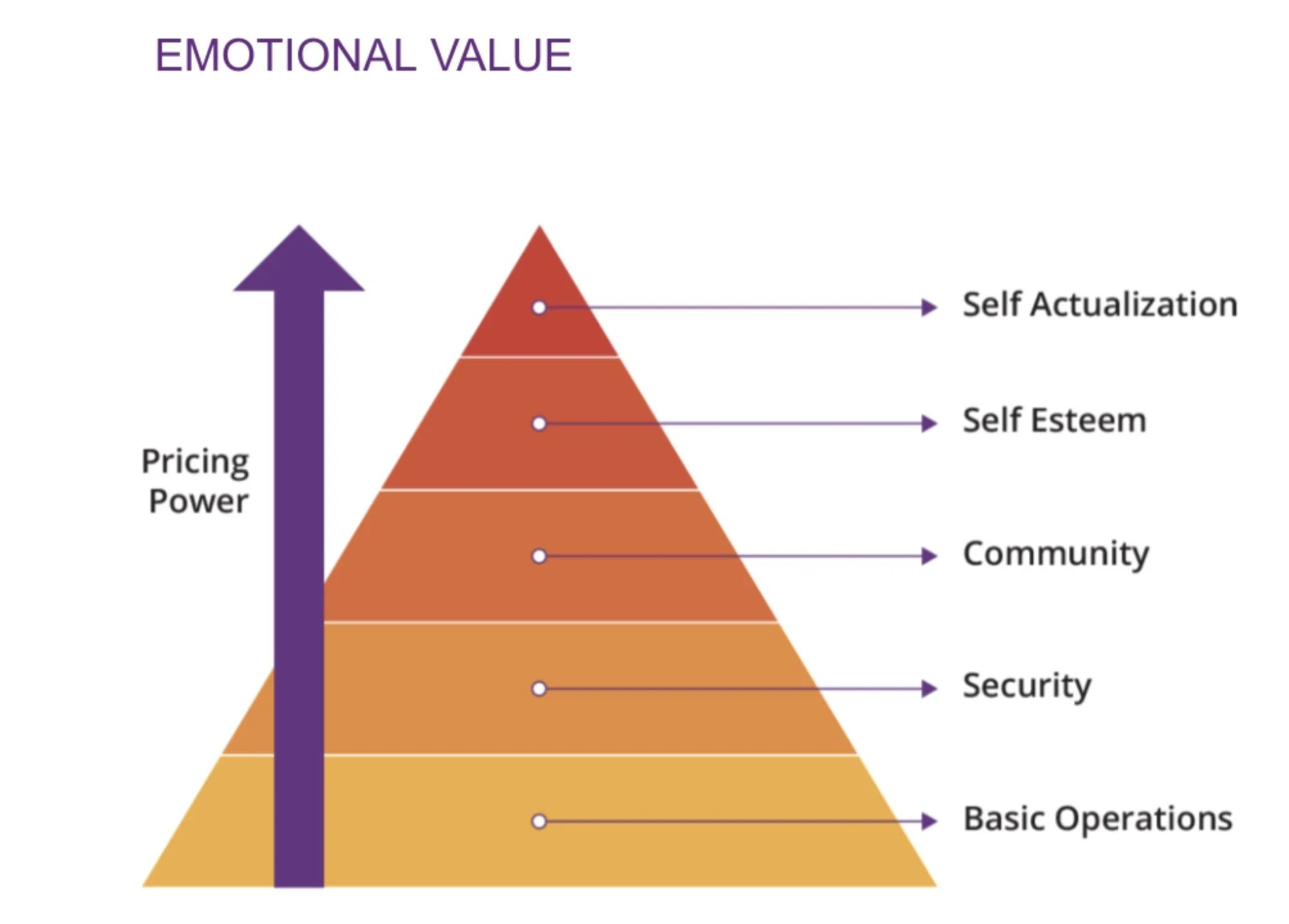Core Concepts: Emotional Value Driver
Liam Hannaford is the Marketing Associate at Ibbaka. See his Skill Profile on Ibbaka Talent.
Definitions
Merriam-Webster defines emotion (noun) as:
a: a conscious mental reaction (such as joy or fear) subjectively experienced as strong feeling usually directed toward a specific object and typically accompanied by physiological and behavioral changes in the body
b: a state of feeling
c : the affective aspect of consciousness
In our Core Concepts post on Value Drivers, we said that “a value driver describes the impact of a product, service, or a set of functionality, on a customer’s business. There are three flavors of value driver: economic, emotional and community.”
Emotional Value Driver
Here we will dive a little deeper into the Emotional Value Driver.
Many organizations have shifted their emphasis from focusing on customer satisfaction to forging an emotional connection in order to enhance the customer experience across the full customer journey. Doing this promotes customer loyalty and improves retention. According to a past Forrester report (The Customer Emotions Driving CX Success), emotion is the primary force underpinning the customer experience.
The Emotional Value Driver Model
The Emotional Value Driver Model
What do we think of when we talk about emotions? In business, emotional value drivers are a critical thinking step towards the value that is driven for customer success and to our clients.
We are all emotional human beings and our emotions drive our individual behaviours and decisions. I feel we can all agree that emotions have quite the significant impact on business and your company’s success. Whether that is within teamwork, customer happiness and satisfaction, manager/employee relationships, and employee retention. In addition, decision-making, planning, negotiating, and critical thinking (Core Concepts: Critical Skill) can all be impacted by our emotional state of ourselves and our brains.
B2B Emotions
For B2B, emotional value is crucial. Without an emotional connection, it can be very difficult to close a sale or sustain engagement without that emotional connection.
Creating emotional value does matter and shouldn’t be undervalued while making purchasing or pricing decisions.
More reading for you
Core Concepts for Pricing and Customer Value Management
Emotional Value Driver (this post)
Coming soon …
Community Value Driver
Connecting Value and Pricing Models
Cross Price Elasticity
Customer Value Journey
Customer Value Management
Economic Value Driver
Interactions of Cross Price Elasticity and Price Elasticity of Demand
Package Design
Pocket Price Waterfall
Price Elasticity of Demand
Pricing Design
Pricing Model
Value Based Market Segmentation
Value Ratio
Value to Customer (V2C)



